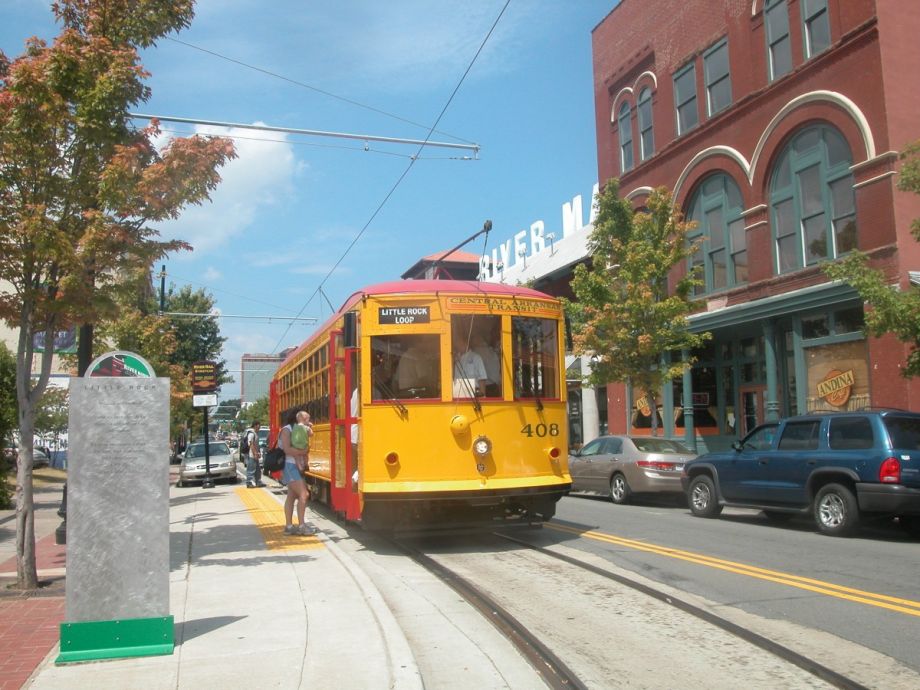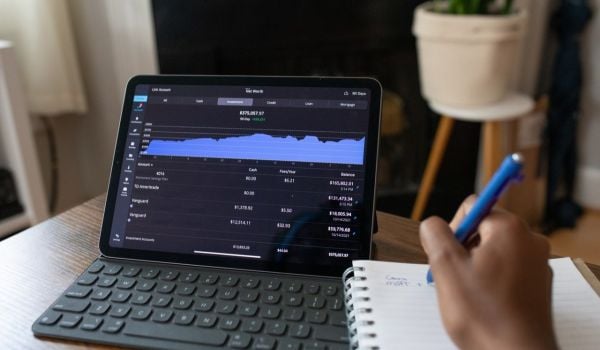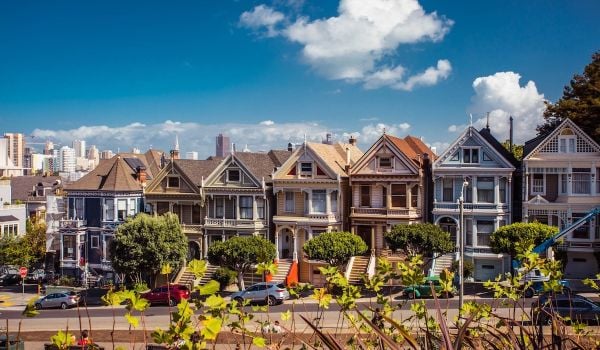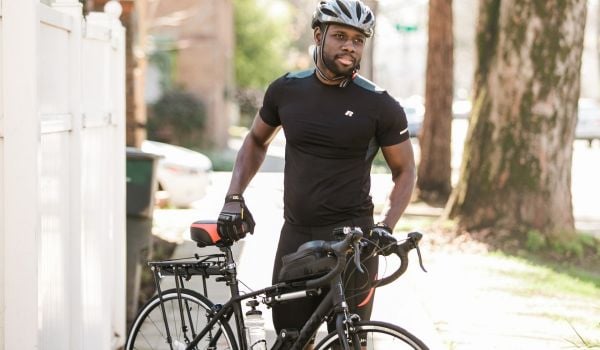Little Rock, Arkansas-based Southern Bancorp has made a successful business model out of serving places where larger banks don’t have much, if any, presence. For most of its history, that’s meant serving smaller cities and rural areas in and around the Mississippi Delta. In Arkansas, that’s meant cities such as Arkadelphia, Hot Springs or Blytheville. In Mississippi, it’s Clarksdale, Indianola or Greenville.
Founded in 1986, with the involvement of then-governor of Arkansas, Bill Clinton, Southern Bancorp and its affiliates or subsidiaries have since made more than $4 billion in loans (and counting) in these smaller cities and rural areas. Now, as the bank looks to expand in larger markets such as Memphis, Tennessee, or Jackson, Mississippi, it’s getting support from some surprising sources.
Bill Wright leads Southern Bancorp’s western region. He rattles off borrowers as if they were superstar athletes, both men and women.
Take, for example, the auto-body shop owner who came in the day before, seeking a line of credit after buying out a competitor; he needs cash to keep his newly expanded business up and running. Or the auto detailer who started out ten, maybe fifteen years ago under just a canopy; the bank helped him repair his troubled credit history, then financed a proper brick-and-mortar location for his business. They later financed his new home, and he’s now financially supporting his daughter to get through college. There’s also the former beauty-salon employee who struck out on her own, and now employs five others in her salon, thanks to Southern Bancorp’s financing.
“These people become the leaders in these small communities,” says Wright. “Now, that’s not every loan. Heck, I also lend money to the richest man in town, but he has 370 employees in his business, and that affects all of us here, in these small communities we’re in.”
It’s no secret that smaller banks serving communities like these have struggled mightily to stick around. When Southern was founded in the mid-1980s, there were 14,000 banks in the United States; today there are barely 5,000. Southern has not quite been distinct from the trend. On the contrary, it has often saved smaller community banks by merging with them, consolidating back-office operations and finding ways to maintain a physical lending and banking presence in every community it’s touched. The branch where Wright works, in Arkadelphia, has been open since 1903; back then it was known as Elk Horn Bank & Trust until it later became the first branch of Southern Bancorp.
As consolidation in the banking sector continued, Southern started seeing gaps in the larger markets in its region — markets such as Memphis, Jackson, and even Little Rock, its home, where Southern only has its headquarters but no regular branches. The bank’s board of directors recently authorized executive leadership to reach deeper into these larger markets.
To help finance continued growth in those and other areas, the bank has raised capital from an assortment of investors, most of whom are intimately familiar with Southern Bancorp and its target communities; the assortment includes the board of directors and executive leadership, as well as other local investors. But it also recently received $7.5 million from a cadre of global investors who are looking to make further investments in other banks such as Southern — banks that have an intentional social mission and also offer reasonable financial returns.
Those global investors are part of what’s known as the SFRE (pronounced ‘sapphire’) fund. SFRE stands for “Sustainability | Finance | Real Economies.” The fund consists of capital pooled from wealthy families and individuals, faith-based investors, philanthropic foundations and large financial institutions based around the world. They’re collectively looking to invest in financial institutions that exemplify the principles espoused by the Global Alliance for Banking on Values, an international network of banks and credit unions both large and small, founded in 2009 in response to the global financial crisis. Southern Bancorp has been a member of the alliance for four years and counting.
At its annual meeting in 2012, the Global Alliance for Banking on Values first published research that compared banks that exemplify its principles, which it calls “values-based banks,” to the largest banks in the world. Looking at financial results through 2010, the research found that values-based banks delivered better and more stable investor returns than those largest banks in the world. In an update of that research published last year, looking at financial performance through year-end 2016, the same results held.
This research sparked the creation of the SFRE fund, which launched in March 2015, in part to provide more capital to values-based banks today, and in part to serve as an example to potential investors of the safe, predictable, healthy financial returns from investing in values-based banks.
“[The original research] provides a base-case as to why values-based banks could be an interesting investment,” says David Korslund, senior advisor with the alliance.
SFRE fund investors aren’t required to be members of the alliance — less than half of the $44 million invested into the fund so far has come from alliance members. The rest of the investors, Korslund says, are interested in earning a financial return at the same time they can support the immediate social returns of creating jobs and access to capital in places like the Deep South. In the long-run, it makes a persuasive case to other investors that values-based banks like Southern Bancorp are a worthwhile investment.
What makes Southern Bancorp a values-based bank? Although it’s not the only way to measure it, one key metric the alliance cares about is the ratio of a bank’s loans to its total asset size. According to the alliance’s 2017 research, loans made up 74.7 percent of values-based banks’ assets, compared with just 41.5 percent of assets among the world’s largest banks. In other words, values-based banks spend the great majority of their time making loans like those to Wright’s superstar borrowers, while the world’s largest banks spend most of their time worrying about other activities — such as making the kind of sophisticated, exotic investments that ultimately led to the financial crisis.
For its part, Southern Bancorp, with $1.22 billion in assets, has a current loan portfolio of $859 million — a ratio of just under 70 percent. Of the remaining $360 million or so in assets, instead of making exotic investments for the sake of highest possible quarterly returns, Southern has mostly plain-vanilla investments in areas such as municipal or U.S. Treasury bonds.
“We’re invested in the municipal bonds of the cities we’re operating in, building schools, building roads, building bridges,” says Darrin Williams, Southern Bancorp’s CEO.
Other banks looking to access capital from the SFRE fund should expect a due diligence that includes a scrutiny of balance sheets over several months and tours of the bank’s service areas, which, taken together, Williams says, examines a bank’s focus “on the real economy, on money put to work to put people to work, on impacting the lives of people on the ground, day to day.”
Banks can also expect questions from the SFRE fund about how to scale up to effect more people and more communities. Southern Bancorp’s plan to reach deeper into Memphis, Jackson and Little Rock will be key to scaling up their work in years ahead.
“We don’t see much difference in access to capital and credit between rural and urban markets,” says Williams. “We believe some of the urban markets, because they’re more dense, will be important to our continued profitability. There [are] more people, more opportunities for business.”
Little Rock is a particular sticking point for Williams, who grew up in the city. He was adopted at two weeks old; his father was a minister who died when he was nine, and his mother was a teacher who started out under segregation and ended up teaching at some of the first racially integrated schools in the country.
“Like most folks in Little Rock, I was not aware of Southern Bancorp because we don’t have any branches here,” says Williams. He later got to know the bank as a state legislator and attorney who worked on class-action lawsuits against predatory financial institutions. While a three-term state legislator (the term limit at the time), his district included areas of Little Rock that were underserved by conventional financial institutions and flooded with predatory institutions, including some that victimized Williams’ mother.
“There’s a swath of Little Rock that is completely underserved,” says Williams. “I could drive you down the 12th Street Corridor, which is just five blocks from where my office sits today, and over the span of two miles I could show you where three or four banks used to be, but they’re no longer there. A largely minority community, banks used to be there, but they’ve exited. Homeownership has declined … we’re actively looking for a place to be in that community.”
This article is part of The Bottom Line, a series exploring scalable solutions for problems related to affordability, inclusive economic growth and access to capital. Click here to subscribe to our Bottom Line newsletter.

Oscar is Next City's senior economic justice correspondent. He previously served as Next City’s editor from 2018-2019, and was a Next City Equitable Cities Fellow from 2015-2016. Since 2011, Oscar has covered community development finance, community banking, impact investing, economic development, housing and more for media outlets such as Shelterforce, B Magazine, Impact Alpha and Fast Company.
Follow Oscar .(JavaScript must be enabled to view this email address)


















